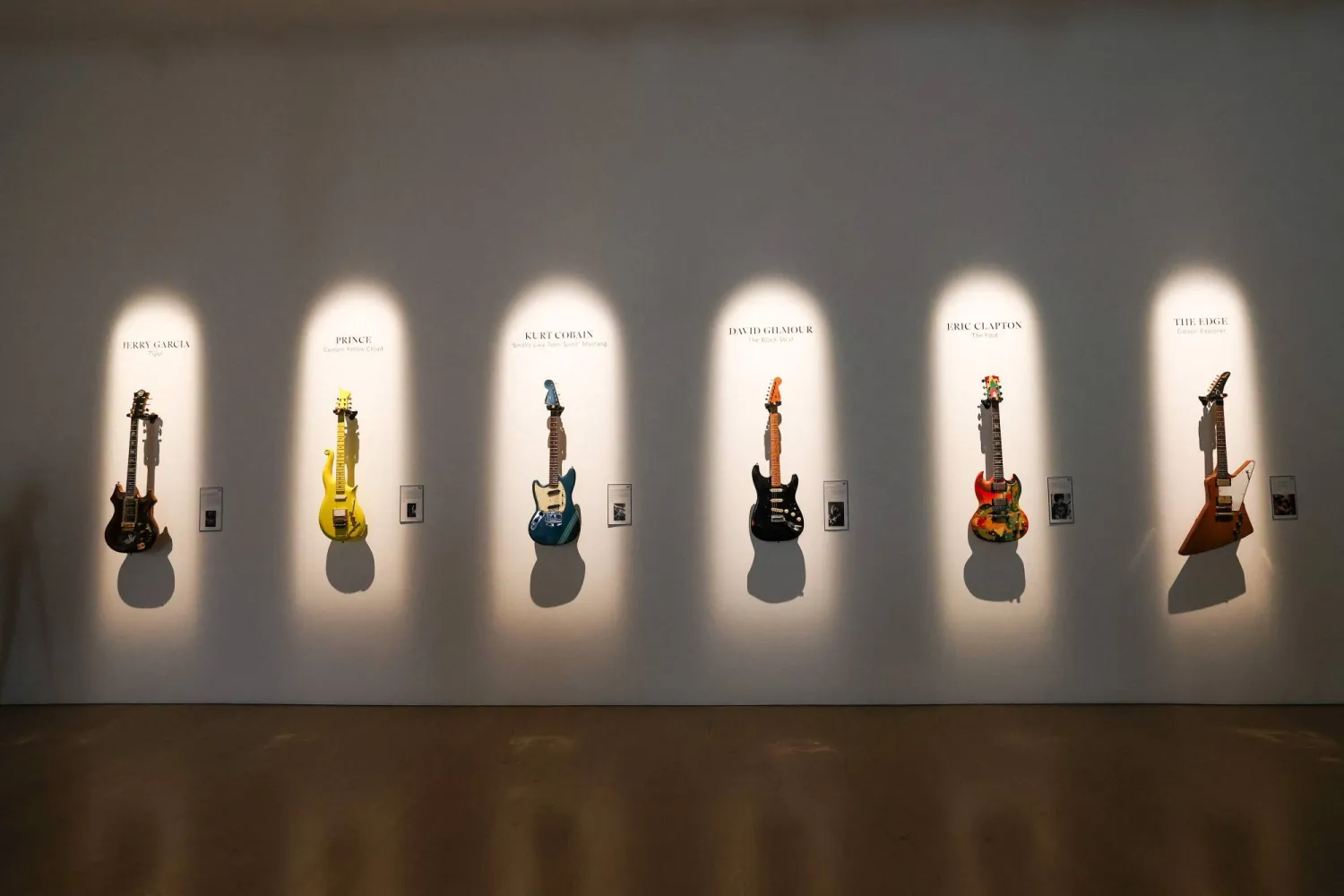Bob Marley’s musical legacy of harmony and peace has hit the road with his sons bringing their late father’s timeless message to life in a multi-city tour.
The reggae giant’s footsteps are being filled by his five sons — Ziggy, Stephen, Julian, Ky-Mani and Damian — during the Marley Brothers: The Legacy Tour. It’s the first time the siblings have performed together on tour in two decades.
Marley’s sons are honoring his work, performing about 30 of their father’s songs including massive hits like “No Woman, No Cry,” “Could You Be Loved,” “Is This Love” and “Three Little Birds.” The 22-date tour kicked off in Vancouver and will conclude in early October in Miami.
“This was very important,” Ziggy said about the tour while his brothers Stephen and Julian sat beside him after a recent rehearsal in Los Angeles. The multi-Grammy winner said it was important for them to collectively find time in their busy schedules and pay homage to their father — who would have turned 80 in February 2025.
“When the opportunity arises, we can come get together, cherish and appreciate it,” he continued. “That’s the big part of it — just being able to do this together. Time is moving.”
The Marley Brothers have their own reggae sounds but found a way to blend it all together. They’ve performed together since childhood including a Red Rocks performance in Colorado last year. Two or three have hit the stage in other shows, like when Damian and Stephen performed at the Hollywood Bowl last month.
Julian said years of collaboration have fostered a deep musical synergy between his siblings — a natural extension of their shared lineage.
“His message goes beyond barriers. It breaks down barriers,” Julian said. “No matter which country you go to, the people need the same message. That’s why this is so everlasting. Never ending. That is the reason we are here and doing this mission.”
Marley rose from the gritty Kingston, Jamaica, slum of Trench Town to reach superstar status in the 1970s with hits such as “Get Up, Stand Up” and “I Shot the Sheriff.” His lyrics promoting social justice and African unity made him a global icon before he died from cancer in 1981 at age 36.
But Marley’s legacy has lived on through several projects including an immersive exhibit in New York and his biopic “Bob Marley: One Love,” which debuted No. 1 at the box office in February.
On Sunday, the brothers were presented a proclamation that declared Sept. 22 as “Marley Brothers Day” in the Queens borough of New York.
His sons have upheld their father’s heritage while forging their own successful paths including Julian — who won his first-ever Grammy in February.
Ziggy and Stephen have each won eight Grammys; Damian has taken home five trophies and Ky-Mani has received a nomination.
Along with the tour, Stephen said they are looking to work on a new album together and push their father’s message of positivity forward. He said it’ll take some time but they aspire to get it “done in the near future.”
“The message in the music is what it’s really all about,” said Stephen, who curated the tour’s setlist. “For me, that message is so necessary now. Our father is one of those powerful ones that got this message across. That’s why we’re here.”









